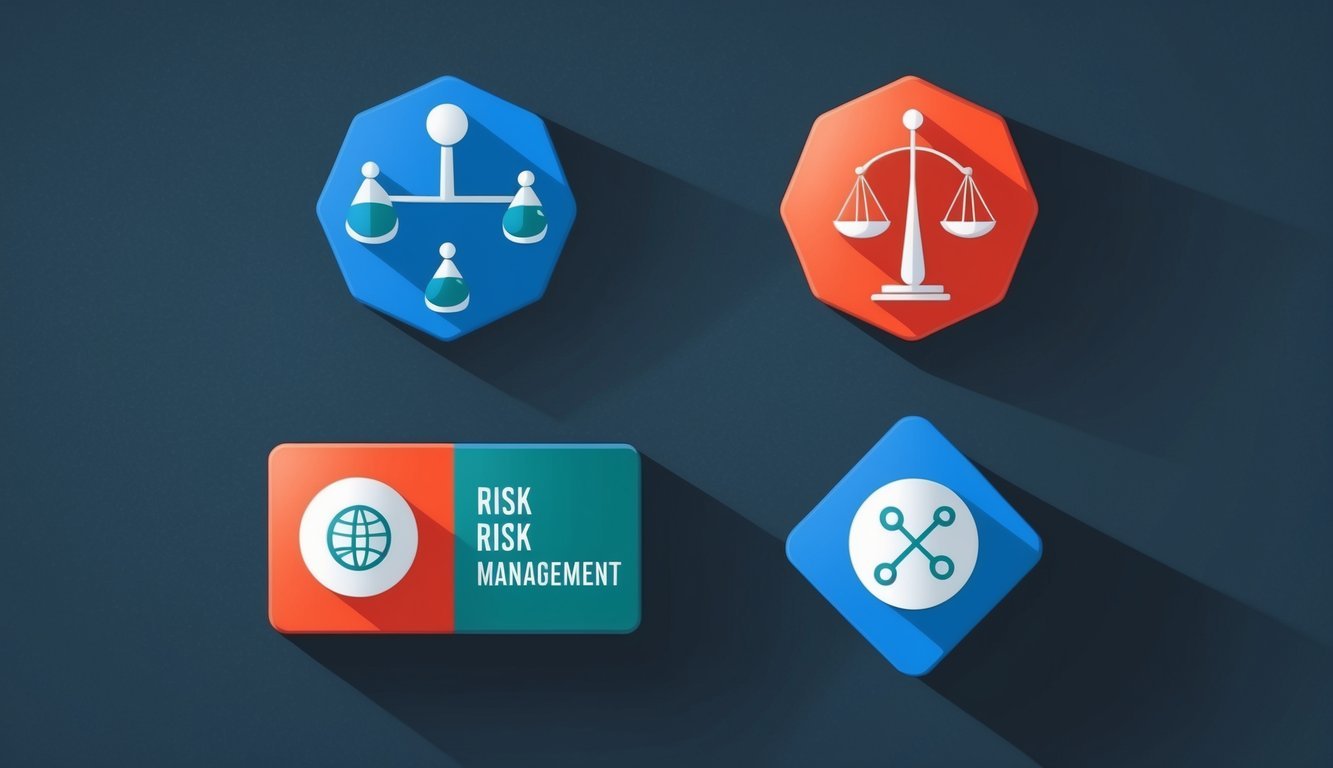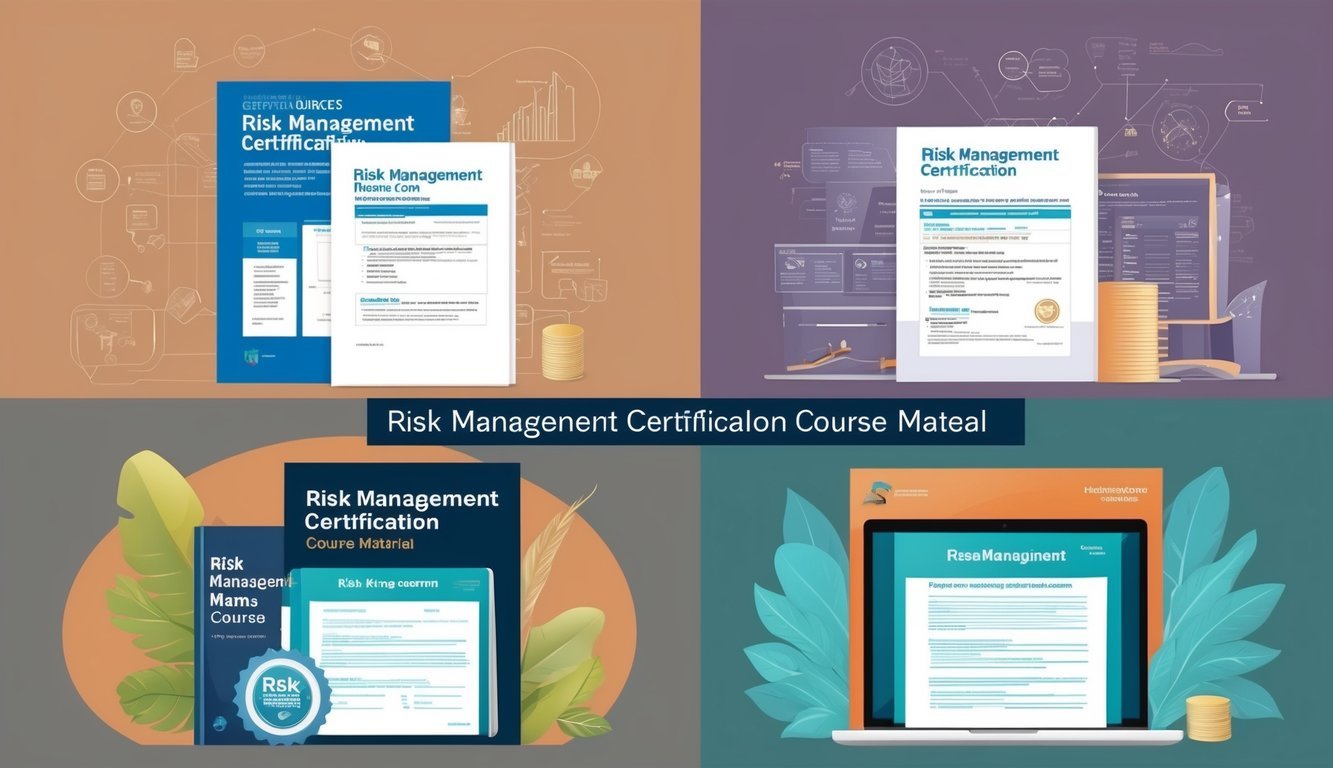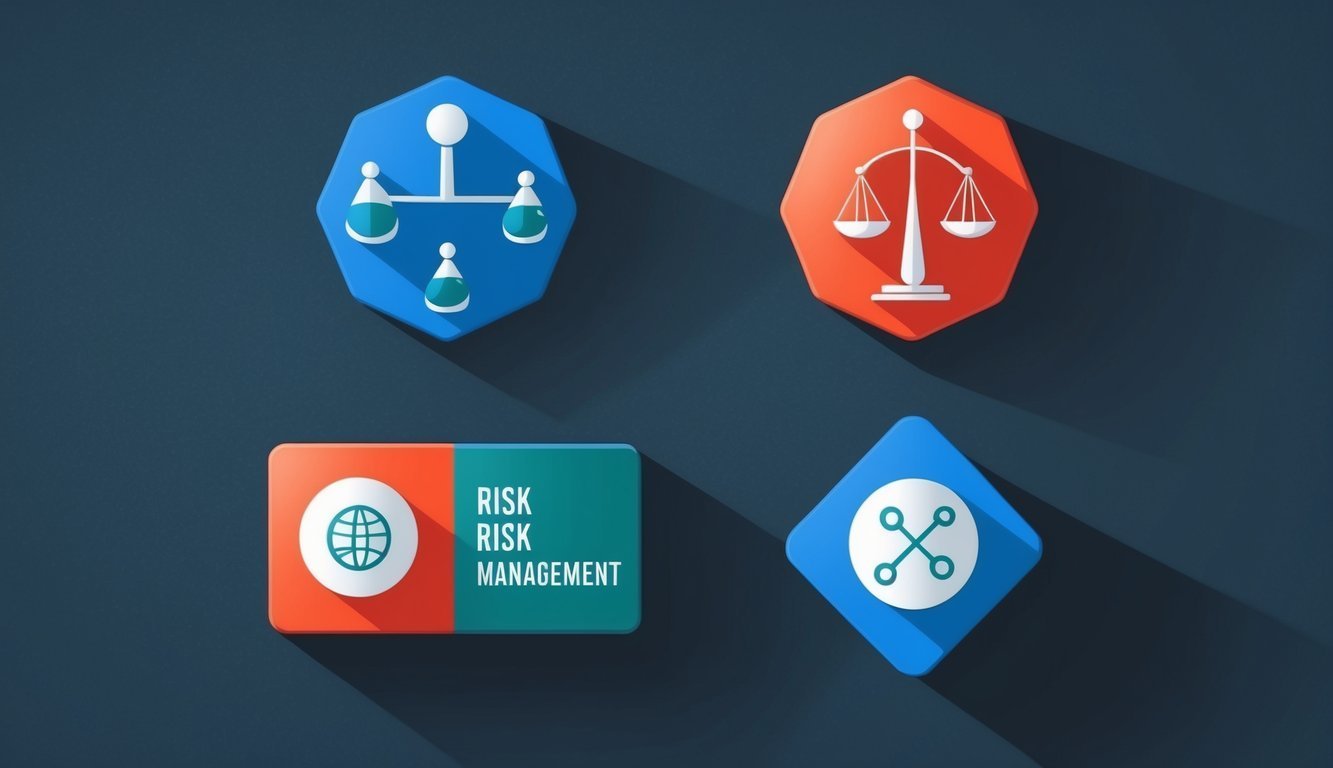Want to boost your career in risk management? Taking a certification course can help you stand out in the job market.
These programs teach you how to spot and handle risks in different fields.

Risk management certifications can lead to better job chances and higher pay. You’ll learn key skills that many companies need.
Let’s look at four top risk management courses that can give your career a big lift.
1) Certified Information Systems Risk Manager (CISRM)
Want to boost your skills in managing IT risks? The CISRM certification might be just what you’re looking for.
It’s all about understanding how to handle risks in information systems.
This course covers a lot of ground.
You’ll learn about risk identification, assessment, and response.
It also digs into monitoring risks and designing controls.
The CISRM training gets you ready for the exam.
It’s packed with topics that matter in the real world of IT risk management.
You can take this course in different ways.
There are classroom options, online instructor-led classes, and self-paced courses.
Pick what works best for your schedule and learning style.
After finishing the course, you’ll have a solid grasp of risk management concepts.
You’ll also know about standards and how to put them into practice.
This cert can give your career a nice boost.
It shows employers you know your stuff when it comes to managing IT risks.
2) Financial Risk Manager (FRM) Certification
Want to boost your risk management skills? The Financial Risk Manager (FRM) certification might be just what you’re looking for.
It’s offered by the Global Association of Risk Professionals (GARP) and is highly respected in the finance world.
The FRM exam is tough, but it’s worth it.
You’ll need to study for about 240 hours to prepare.
That’s a lot of time, but it’ll pay off when you’re done.
The exam covers a wide range of topics.
You’ll learn about market risk, credit risk, and operational risk.
It’s split into two parts, so you can take it step by step.
Want to start studying? GARP offers study modules to help you prepare.
These cover everything you need to know for the exam.
Once you pass, you’ll join a group of skilled professionals.
FRMs are in demand at big companies and can work in many different roles.
Remember, this certification isn’t just a piece of paper.
It shows you really know your stuff when it comes to managing financial risks.
It could be your ticket to new career opportunities in finance.
3) Enterprise Risk Management Certification by EFMI

Looking to boost your risk management skills? The Enterprise Risk Management Certification by EFMI might be just what you need.
This program helps you learn how to handle risks in organizations.
You’ll get the know-how to make smart choices about risks.
The course teaches you to spot problems before they happen.
It’s great for folks who want to move up in their risk management careers.
The certification shows bosses that you know your stuff.
You’ll learn about different types of risks businesses face.
These include money risks, legal issues, and day-to-day problems.
After finishing, you can help companies stay safe from threats.
You’ll be able to create plans to deal with risks.
This can make you a valuable team member in any business.
The course is flexible, so you can study at your own pace.
It covers real-world examples to help you understand better.
You’ll be ready to tackle risk challenges in no time!
4) Certified Risk Management Professional (CRMP)
Want to boost your risk management career? The Certified Risk Management Professional (CRMP) might be just what you need.
This certification is offered by the Risk Management Society (RIMS).
The CRMP is perfect for pros looking to level up their skills.
It covers five key areas of risk management.
You’ll learn about analyzing business models, designing organizational risk strategies, and more.
Getting this cert can really pay off.
CRMP holders earn about $16,000 more per year than those without it.
That’s a nice bump in your paycheck!
Preparing for the exam is easy with the RIMS-CRMP Overview Course.
You can study at your own pace online.
The course uses fun activities and quizzes to help you learn.
The CRMP is globally recognized.
It shows employers you’ve got what it takes to handle big risks.
Plus, it can open doors to senior roles in finance and operations.
Benefits of Risk Management Certification

Getting a risk management certification can boost your career and make you stand out in the field.
It shows you know your stuff and can handle tough situations.
Enhancing Career Opportunities
With a risk management certification, you’ll open doors to new job roles.
You might land a gig as a risk manager or move up to a senior position.
Companies are always on the lookout for pros who can spot and tackle risks.
Your paycheck could get a nice bump too.
Certified risk managers often earn more than their non-certified peers.
It’s like having a golden ticket in the job market.
Plus, you’ll be ready for bigger challenges.
Tackling complex projects? No sweat.
You’ll have the skills to keep things on track when problems pop up.
Gaining Industry Recognition
A certification puts you in the big leagues.
It’s proof that you meet top industry standards.
Your peers and bosses will see you as an expert in risk management.
You’ll join a network of other certified pros.
This can lead to cool opportunities to work on exciting projects or even speak at events.
It’s like joining an exclusive club for risk management wizards.
Your certification also shows you’re committed to staying sharp.
It tells employers you’re always learning and growing in your field.
In a fast-changing world, that’s super valuable.
Key Skills Developed Through Certification

Risk management certifications help you gain valuable skills.
You’ll learn to analyze complex situations and make tough choices when facing uncertainty.
Analytical Thinking
Risk management courses sharpen your analytical skills.
You’ll learn to spot potential issues before they happen.
This helps you protect your company from harm.
Financial Risk Management certifications teach you to crunch numbers and see patterns.
You’ll get good at using data to back up your choices.
You’ll also pick up tools to measure and track risks.
These might include software or special techniques.
With these skills, you can create solid plans to handle problems.
Decision-making Under Uncertainty
Making calls when you’re not sure what will happen is tough.
Risk management training helps you get better at this.
You’ll learn how to weigh pros and cons when the outcome isn’t clear. PRINCE2 certification shows you how to manage projects with lots of unknowns.
These courses teach you to think on your feet.
You’ll practice making quick choices when things go wrong.
This skill is super useful in fast-paced jobs.
You’ll also learn how to explain your decisions to others.
This is key for getting people on board with your plans.
How to Choose the Right Certification Course

Picking the best risk management certification can boost your career.
You’ll want to think about your goals and check out what each course covers.
Consider Your Career Goals
Think about where you want your career to go.
Are you aiming for a specific job or industry? Some certifications are better for certain fields.
For example, if you’re into project management, the PMI-RMP certification might be perfect for you.
It’s a big deal in the project world.
If you’re more into finance, look at certs that focus on financial risk.
Your current job matters too.
Pick a cert that fills gaps in your skills or knowledge.
Evaluate Course Content
Look closely at what each course teaches.
Does it cover the topics you need to learn? Some courses might focus on one area, while others give a broad overview.
Check if the course includes real-world examples and case studies.
These can help you apply what you learn to your job.
Also, see if the course offers practice exams.
These can help you prep for the real test.
Don’t forget to look at how long the course takes and if it fits your schedule.
Some certs need you to have work experience.
Make sure you meet all the requirements before you sign up.
Frequently Asked Questions

Risk management certifications can boost your career and skills.
They cover different areas like finance, IT, and business.
Let’s look at some common questions about these programs.
How can I start a career in risk management with entry-level certifications?
You can start with the Certified Risk Management Professional (CRMP) certification.
It’s great for beginners.
You’ll learn the basics of risk assessment and control.
This cert can help you land your first job in risk management.
What are the recommended certifications for enterprise risk management?
The Enterprise Risk Management Certification by EFMI is a top choice.
It teaches you how to manage risks across an entire company.
You’ll learn about risk strategies and how to create risk management plans.
Are there any risk management certifications available for free?
Some platforms offer free courses in risk management basics.
But most recognized certs cost money.
You might find free intro courses on sites like Coursera or edX.
These can help you decide if you want to pursue a paid certification later.
These free courses can provide a solid foundation before committing to a more advanced program.
If you’re exploring other fields, you might also come across top veterinary assistant courses that offer introductory lessons at no cost.
Taking advantage of these resources can help you make informed decisions about your education and career path.
What’s the difference between FRM and ERM certifications, and which one is preferred?
The Financial Risk Manager (FRM) Certification focuses on financial risks.
ERM covers risks across all parts of a business.
FRM is better if you want to work in finance.
ERM is good for a broader business role.
Both are valued, so choose based on your career goals.
Is a COSO ERM certificate valuable for my professional development?
Yes, a COSO ERM certificate can be valuable.
It shows you know how to use the COSO framework for risk management.
This skill is useful in many industries.
It can help you stand out when applying for risk management jobs.
What do people on Reddit say about the best risk management certification courses?
Reddit users often recommend the FRM certification for finance roles.
They also talk about the Certified Information Systems Risk Manager (CISRM) for IT risk jobs.
Many say that the best cert depends on your specific career goals and industry.

